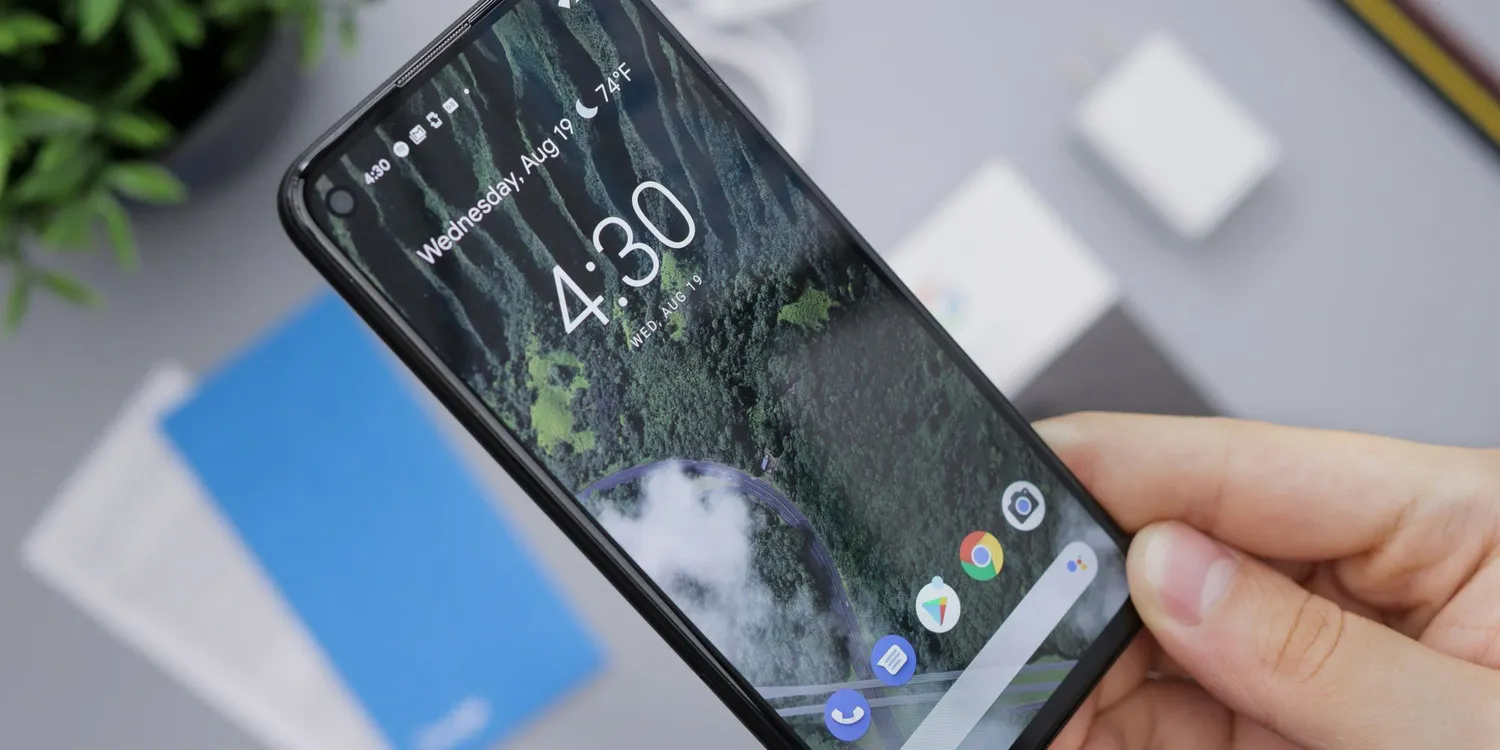17 Jul 2024
“How to deactivate facebook” has been one of the world’s top Google searches almost every month for the last year. AlsoAsked data also shows that popular queries around smartphones and social media now include questions like “how do I turn my phone into a dumb phone?”, “how can I use my phone as little as possible?” and “is social media harmful to humans?”, among others in a similar vein. Here, we explore the driving forces between online demand for information around digital detoxes, dumb tech and tackling smartphone addictions.
Social media addiction
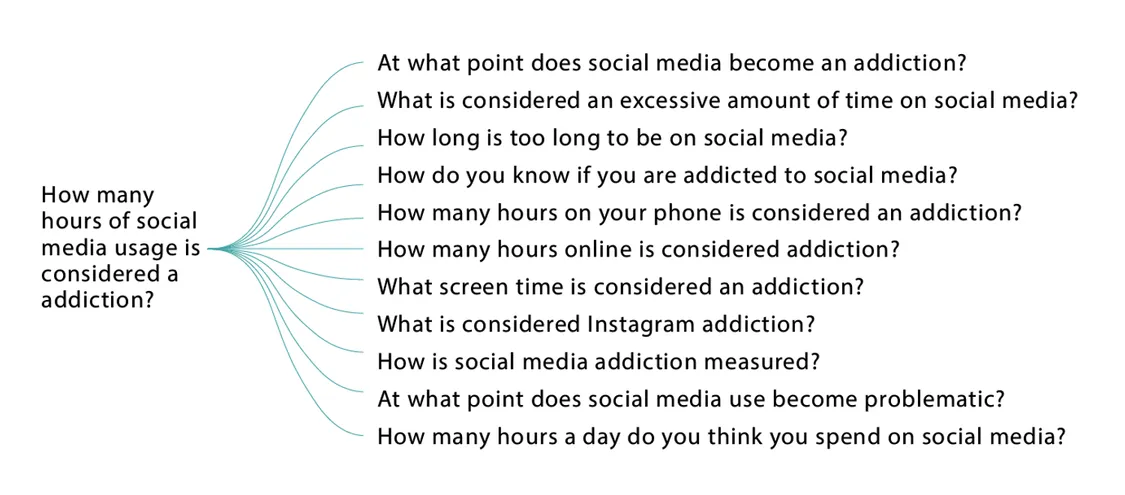
In February 2024, New York’s schools and public health system announced a lawsuit against TikTok, calling the social media platform “addictive and dangerous” and responsible for fueling a childhood mental health crisis. Similar cases are becoming more frequent, with Instagram and its parent company, Meta, being sued by 33 US states in 2023 for endangering youth mental health.
The issue is not limited to the US. The Millennium Cohort study, which is tracking the lives of about 19,000 people born across the UK between 2000 and 2002, found that 48% of its respondents either agreed or strongly agreed with the statement “I think I am addicted to social media”.
At what point does a bad habit become so instinctive that it becomes an addiction and what can be done to break the habitual cycle of increasing screen time? This article will use insights from mental health experts to assess the impact of smartphones on mental health and investigate how the use of ‘dumb tech’ could help those planning a digital detox.
The impact of smartphones on mental and physical health
Across all age groups, the number of hours an average person spends in front of internet-connected screens has been gradually increasing in recent years. Smartphones and tablets have become so ubiquitous that Exploding Topics estimates that the average person has reached 6 hours and 58 minutes of screen time per day, checking their phones 58 times in that period.
Excessive smartphone use can have a dramatic impact on mental health and related issues. Some of these issues include:
- Difficulty sleeping
- Attention and focus issues
- Loneliness
- Anxiety
- Depression
- Insecurity
- Trouble concentrating.
For Gen Z, many of those hours of screen time per day are spent on social media, which is known to have negative impacts on mental and physical health. It’s not surprising, then, that 54% of younger adults say that constantly being on their devices is bad for their wellbeing, and that 51% in that same study said they daydream about life without social media.
NHS Psychotherapist and UEA Lecturer Claire Moran said “This is an interesting paradox that something billed as "social" could also make someone feel lonely. We know that social connection is absolutely pivotal to good mental health and, on the surface of things, social media appears to keep us more connected and offers a wider scope for growing and maintaining relationships. However, there is research to suggest that time spent on social media can detract from face-to-face interactions and lead to a more sedentary lifestyle.
“Other research has shown that prolonged use of platforms such as Facebook results in symptoms of depression and anxiety. Social theorists have considered that this could be related to creating and maintaining false narratives about your life - controlling what we present to the world and cultivating a 'false self.' Any love we receive based on that 'false self' would never truly feel as fulfilling and it is easy to see how one could get caught in a cycle of seeking likes and approval. A systematic review in 2023 found that social media envy was also a factor influencing depression and anxiety, it reminds me of the old adage "Comparison is the thief of joy."”
Smartphone addiction
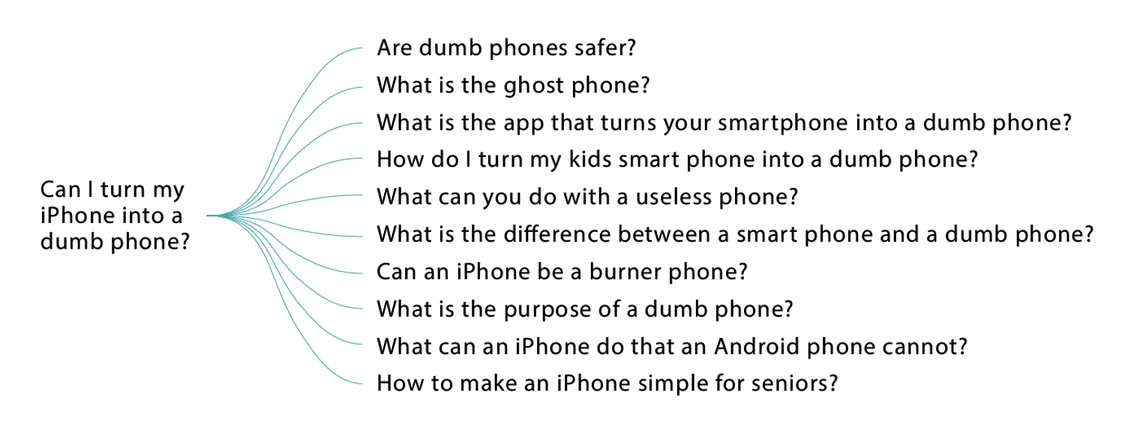
Smartphones have evolved beyond simply being a tool for communication, becoming integral to all facets of everyday life - banking, fitness, entertainment, work and entertainment all meet at this central point. When we have issues, the solution is often presented in the form of yet another app - nutrition trackers, sleep monitoring, daily wellbeing and mindfulness - increasing screen time even further than before.
Society normalises reliance on devices, but how can you tell if your use is becoming problematic? We suggest that the way to identify an addiction is that if something is costing you more than money it could be becoming a dependency. For example;
- Is it costing you time? Are you spending more time on digital devices than you personally want to?
- Is it costing your wellbeing? Are you neglecting more healthy pursuits, including spending quality time with friends and family?
- Is it costing you socially? When spending time with friends and family are you constantly drawn to checking your device?
- Is it costing you sleep? Are you staying up later than you would like?
Find out more about smartphone addiction here.
A black mirror reflecting culture
University of Manchester Sociology lecturer Dr Briony Hannell presents another important perspective - that phones and new technology are actually not as addictive as they first appear, it is modern culture and the world around us that is the root cause of our mental health concerns.
“Research suggests that we have limited tools available to make sense of how widespread digital media technologies are, so we default to a "diagnostic paradigm:" social problems regarding technology are transformed into personal "pathologies". In reality, the issues we see stem from bigger social and cultural changes that we oversimplify by simply blaming phones - a lot of issues we see around poor mental health are structural - austerity, the cost of living crisis, decreasing access to mental health services, etc. These issues don’t simply originate from our phones.
“Are smartphones innately addictive, or are we seeing the effects of a late capitalist culture of work that requires us to always be optimising ourselves, always be available, always be making every good thing we do and good thought we have visible which then lends itself to always being connected and using our phones?”
Wherever the root cause of the issue lies, recognition of the need to react to ‘always-on’ culture is beginning to gain popular recognition through the concept of a digital detox.
The growth of digital detox
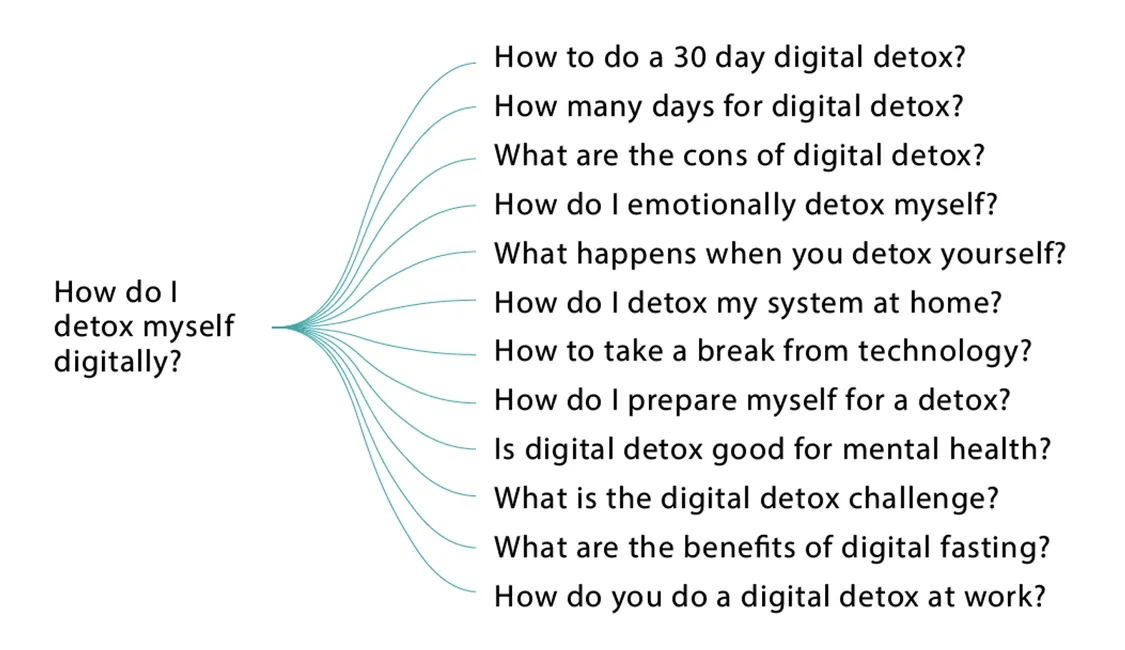
Increased awareness and experience of smartphone addiction have caused a surge in individuals seeking to realign their relationship with technology. According to Keywords Everywhere, searches for ‘digital detox’ more than tripled so far in 2024 compared to 2023, with 1.1K average monthly UK searches.
The intent behind a digital detox is to take a break from social media and smartphone use to reduce stress and improve mental well-being. While this is a positive step, it is not necessarily going to be easy to accomplish in a society that is increasingly dependent on technology.
Here at Rehabs UK, we know that withdrawal from social media has many parallels to other types of addiction. “As with all addiction withdrawals, you can expect some emotional discomfort - irritability, hypersensitivity around other people and some situations.” Founder Lester Morse notes. “Mood swings are common and can bring with them frustration, boredom and a lack of inspiration. It is important to try and avoid finding another unhealthy outlet during this time, but the good news is that as you spend more time in positive and worthwhile pursuits, these negative feelings will subside.”
Could ‘Dumb’ tech be the answer?
As 90s fashion makes a comeback, flip phones are enjoying a resurgence in popularity. But for many Gen Zs and Millennials, this is also a lifestyle choice - an opportunity to distance themselves from social media and modern technology with stripped-down, simplified devices. With limited features, ‘dumb’ phones allow for essential communication but do not support many popular apps, making social media inaccessible and potentially saving hours a day while reducing the impact of smartphone addiction on mental health and wellbeing.
Google Trends data shows that searches for the term “dumb phone” have steadily increased since 2020, while the number of members of the Reddit r/dumbphones tripled between 2023 and 2024. Searches for ‘dumb phones’ are experiencing month-on-month increases, with 1.8K average monthly searches in the UK alone, according to Keywords Everywhere.
What makes dumb tech stand out as a potential solution is that people are acting on their initial curiosity. Research firm Canalys notes that smartphone shipments slid by 13% in the first quarter of 2023, on a year-to-year basis. Meanwhile, feature phone sales in the US were forecast to reach 2.8 million in 2023, with demand expected to remain stable, especially for flip phones and devices produced by the likes of Nokia, Light, Punkt, and Doro.
In addition to mental health improvements, ‘dumb’ tech could also result in other benefits - without the temptation to chase the latest model, users can avoid the projected trend of increasing handset prices between 2024 and 2028. Privacy and security can also enjoy a significant boost. While dumb phones are not invulnerable to security threats, with no internet access or third-party apps, modern concerns like data privacy, tracking, ads and data breaches are much less of an immediate concern.
Do we even know how to be human anymore?
It is almost impossible to meet the demands of modern life without engaging with technology multiple times a day, but that doesn’t mean it needs to consume your life.
If being removed from digital devices causes anxiety, FOMO and a sense of isolation, ‘dumb’ phones may help to bridge that gap until you can create a new routine that suits your needs.
Awareness of your usage habits and their impact on those around you could be an indicator that it is time to consider a digital detox - just a weekend without social media could be the start to help you to reset your relationship with technology and improve your wellbeing.
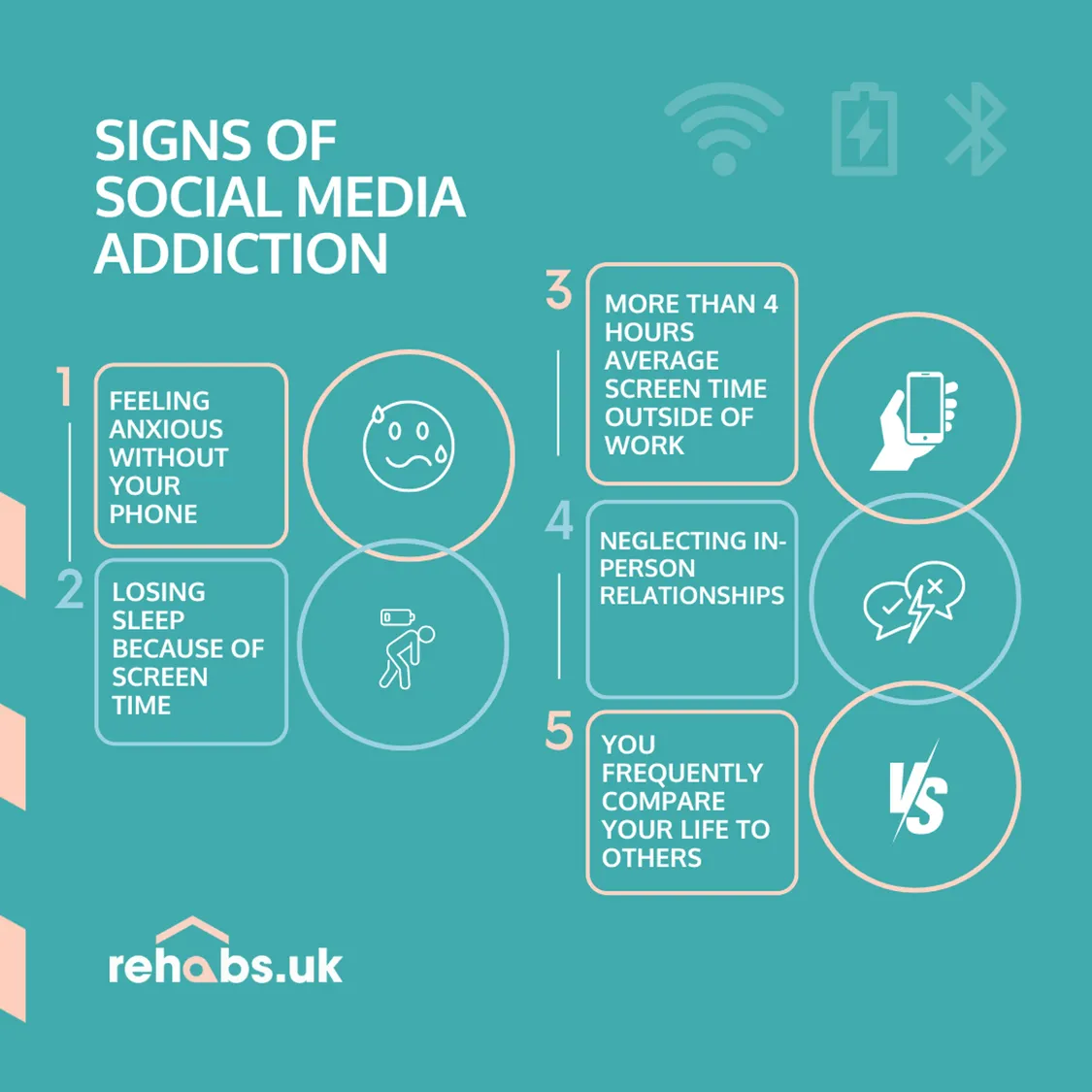
Social media addiction can be a gateway
There is a correlation between young people on social media and then experimenting with drugs and alcohol.
A study from the University of Glasgow and published by the BMJ shows that frequent or daily social media use was associated with higher odds of alcohol consumption (48%), drug use (28%) and tobacco use (85%) compared with infrequent or non-daily use.
Rehabs UK Senior Treatment Advisor, Scott Ardley, states:
"The experimentation of young people with drugs and alcohol is not new; however, social networking sites have created new and easy avenues for adolescents to encounter drug-related content. Teenagers are particularly sensitive to the influence of social media, as they are greatly affected by peer pressure and the desire to fit in. Platforms such as Instagram, Facebook, and Snapchat can expose them to both drug-related content as well as drug dealers.”
FAQs answered with Psychotherapist Claire Moran
In this section, Psychotherapist Claire Moran answers common questions on the topic of social media addiction:
Why is social media so addictive?
“There is evidence to suggest that apps like Instagram and TikTok have employed the "casino effect" to keep people hooked - it is a clever design that aligns with the design of slot machines. The way that we scroll information now, this keeps us in an endless cycle of anxious anticipation and reward. In that way, we could see how this could create an addictive relationship with the promise of little bursts of dopamine.”
Why does social media make me feel lonely?
“This is an interesting paradox that something billed as "social" could also make someone feel lonely. We know that social connection is absolutely pivotal to good mental health, it is one of the pillars of wellbeing. We also know that on the surface of things, social media appears to keep us more connected and offers a wider scope for growing and maintaining relationships.
“However, there is research to suggest that time spent on social media can detract from face-to-face interactions and lead to a more sedentary lifestyle. Other research has shown that prolonged use of platforms such as Facebook results in symptoms of depression and anxiety. Social theorists have considered that this could be related to creating and maintaining false narratives about your life - controlling what we present to the world and cultivating a 'false self.' Any love we receive based on that 'false self' would never truly feel as fulfilling, (fleetingly so!) and it is easy to see how one could get caught in a cycle of seeking likes and approval. A systematic review in 2020 found that social media envy was also a factor influencing depression and anxiety. It reminds me of the old adage "Comparison is the thief of joy."
Why am I so tired of social media?
“There is also the dopamine factor (also relevant in ADHD which is interesting to consider in light of ADHD diagnoses being on the rise). Some research has demonstrated a strong link between social media use and the brain's capacity for dopamine synthesis, also finding that there was higher social app usage amongst those with lower dopamine synthesis capacity which suggests issues with the brain's reward processing system. This is really interesting when thinking about 'social media addiction' and who might be more vulnerable to low mood, post social media use.”
Why do I feel depressed after being on social media?
“There is evidence to suggest that apps like Instagram and TikTok have employed the "casino effect" to keep people hooked - it is a clever design that aligns with the design of slot machines. The way that we scroll information now, this keeps us in an endless cycle of anxious anticipation and reward. In that way, we could see how this could create an addictive relationship with the promise of little bursts of dopamine.
“We have also cultivated a new language for our social media use - "doom scrolling" and "FOMO" for example go someway to acknowledge dysfunctional ways of relating to social media. Never before have we had so much access to so much information - whether it is the fact your friends are on holiday and you can't afford to pay bills, or the effect of exposure to violence and war.
“Anecdotally (and I'm sure many parents can attest to this) I have noticed in my therapeutic work that young people can much more easily become victims of bullying via social media. Parents often describe the access children have to one another as detrimental, and how it can feel like their children can't escape bullying when they come home - instead it is as though the perpetrators have been brought into the family home.“
Are people who don't use social media happier?
“Research suggests that social comparison has a negative effect on mood and life satisfaction, and some research suggests that the passive consumption of others' lives (and subsequent comparison) can have negative effects, whereas the active use of social media - the messaging and interaction - can increase the feeling of having social capital. It's a mixed bag basically, depending on so many factors such as your life outside social media, your existing social capital, access to the world around, self-esteem and subjective wellbeing.
Is deleting social media good for mental health?
“A common reason for deleting social media is sometimes referred to as exhaustion/overload (this has been referred to as "techno-stress." Research has demonstrated that breaks from social media can be very beneficial, and other research has suggested completely coming away from social media had positive outcomes. I think the issue is that we each use social media differently, based on gender, age, social circumstances etc etc., it is hard to reach a consensus. The recent government decision to 'crackdown' on the use of phones in classrooms is an interesting one - I think it is a step towards addressing the negative aspects of phones and social media.
“When seat belts first became law people were not happy about it, but deaths then decreased significantly on the roads - we don't yet have safety belts for the internet and social media.”
For help and guidance with mobile phone addiction and/or internet addiction , start your recovery today and speak to a friendly member of the Rehabs UK team.
